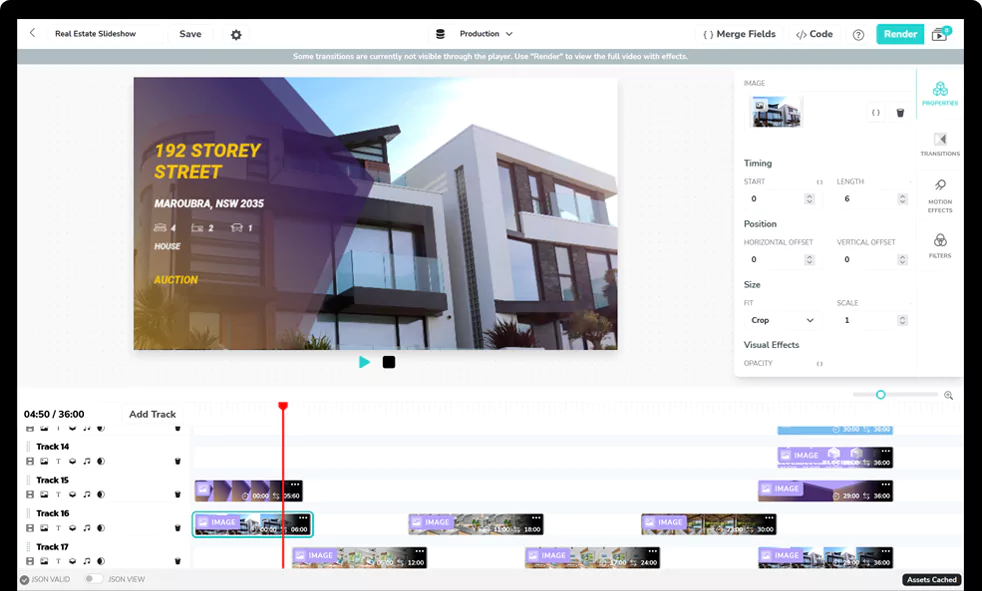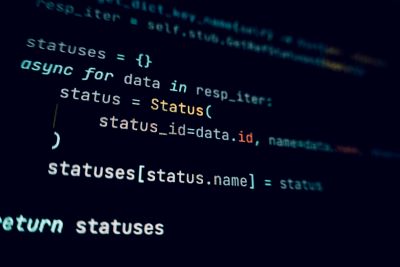Are you a developer searching for the perfect stock video footage or image API to seamlessly integrate into your application? In this article, we’ll guide you through the top stock media APIs, highlighting their key features to help you make an informed decision.
What is a stock media library?
Stock media libraries, also known as stock footage, stock image or stock video libraries are online platforms that offer a vast collection of images and videos. These media assets are available for licensing and can be used in various creative projects from print, web and video production.
Stock libraries usually fall in to one of two categories: free (or community) and commercial.
Free stock libraries
Free stock libraries are community-driven platforms that offer a wide range of media assets contributed by a community of photographers and film makers. The collections are typically filtered for quality but anyone can upload and submit their images and videos. The licensing terms vary, but most free stock libraries offer royalty-free content that can be used in commercial projects without attribution or payment.
Commercial stock libraries
Commercial stock libraries are platforms that offer premium content from professional photographers and film makers. The collections are curated and filtered for quality, and the licensing terms are more restrictive. Commercial stock libraries offer royalty-free content that can be used in commercial projects, but a per item licensing fee or subscription is required.
What is a stock media API?
A stock media API, also known as a stock footage API, stock video API or stock image API allows developers to programmatically access a stock media library. This allows developers to integrate stock media into their applications, providing their users with a seamless experience.
Stock media APIs are used in a number of creative applications such as video editing, image editing and graphic design software and online SaaS applications. These applications call the API to build galleries of stock media that users can browse, license and add to their creations.
To help you choose which API to use in your application here’s a break down of the best stock media APIs available in 2024:
Pexels API

Pexels, now part of Canva offers a user-friendly API with access to a vast collection of high quality images and videos. Photos and videos are hand-picked and curated from a community of talented photographers and film makers.
The API is free to use and no attribution is required making it a perfect choice for developers looking to build stock media into their applications without the hassle of licensing fees. The API includes image and video searching, collections and fetching individual media assets.
Pros
- Extensive collection of free high quality images and videos.
- Straightforward documentation and immediate developer registration.
- Ruby, JavaScript and DotNet SDKs.
Cons
- Limited selection compared to some commercial options.
Licensing
Free to use. No attribution required.
Costs
Pexels API is free to use.
Documentation
www.pexels.com/api/documentation/
Adobe Stock API

Adobe have been leading the way in creative software for decades, so it was only a matter of time before they launched their own stock media library offering images, videos, music and more. Adobe Stock requires you to have an Adobe account and there are a selection of assets that can be licensed for free but it primarily a commercial library available via subscription.
The Adobe Stock API provides access to the Adobe Stock library. Access to the API is free using an API key to search and view assets, but to license an asset requires a JWT token. As well as keyword searching the API offers a visual search to find similar images.
Pros:
- 200 million assets available.
- Visual image search to find similar images.
- Easy to follow docs and SDKs for PHP and Java.
Cons:
- Multiple steps and authentication methods required to license an asset.
- Extended licensing is required to use assets in templates.
Licensing
Commercial. Limited free assets, most require a subscription or credits.
Costs
From $29.99 per month for 10 assets.
Documentation
developer.adobe.com/stock/docs/getting-started/
Shutterstock API

Shutterstock, have been offering stock media assets since 2003 and disrupted the industry by being the first to offer an online subscription model. Today it boasts a library of over 460 million images, videos and music tracks. Shutterstock is commercial only and requires a paid subscription or licensing packs.
The Shutterstock API is used by some of the worlds largest companies such as Facebook, Wix, AWS, Microsoft and Google in applications as diverse as AI training and advertising solutions. The API offers access to the library with multiple plans that grant access to different collections of assets. There is a free plan for testing but this only grants access to images, not videos. The documentation is extensive, authentication can be done using basic auth or OAuth. There are endpoints to search using keywords, computer vision and AI search. Licensing requires additional requests to the API.
Pros:
- Up to 460 million images, videos, and music.
- Multiple ways to search for images and media.
Cons:
- Free testing plan only includes images, not videos.
- Licensing requires additional requests to the API.
Licensing
Commercial. Requires a subscription or licensing packs to access videos and music.
Costs
API pricing only available by contacting sales.
Documentation
shutterstock.com/developers/documentation
Vecteezy API

Vecteezy is an online marketplace for stock photography with a quickly growing presence in the industry due to its affordability. It offers over 50 million images, graphics, and videos for a flat monthly (or annual) fee. It’s popular among creative agencies and startups who want to integrate a lot of visual content into their software or app with little effort.
The Vecteezy API is an easy to use REST API with search and download functionality. The documentation is well written and easy to understand. An interactive Swagger UI makes it easy to test out the API. The API is a paid service with tiers that include several downloads and API requests per month. There is also a free trial.
Pros
- 50 million assets (photos, videos, SVGs, and PNGs).
- Simple commercial licensing.
- Powerful search functionality.
- Flexible licensing.
- Free trial.
Cons
- High volume applications might quickly exceed pricing tier limits.
Licensing
Commercial with commercial use licensing.
Costs
From $40 per month, billed monthly or annually.
Documentation
https://www.vecteezy.com/api-docs
Storyblocks API

Storyblocks are a relative newcomer to the stock media library scene and lack the prestige of some of the more established players. However, they have a comprehensive library of images, videos, and audio clips. They have a subscription only service focusing on unlimited usage for a monthly fee.
The Storyblocks API is available for a fixed, but undisclosed fee based on usage and can only be negotiated via sales. A number of startups and online image and video editors use the API to provide stock media to their users, including WeVideo, Biteable and Moovly. You can register for free to start testing the API with 5 free image, video and audio downloads. Links to the documentation in the developer portal but I eventually found a Postman collection that was usable but not very user friendly.
Pros:
- Budget friendly, fixed price pricing for unlimited use.
- No additional steps required to license media.
Cons:
- Documentation is hard to find and only a Postman collection is available.
- No SDKs listed.
Licensing
Commercial. Unlimited usage based on fixed price fee.
Costs
Fixed price. Pricing only available by contacting sales.
Documentation
documentation.storyblocks.com/
Unsplash API

Unsplash is a community-driven library with a collection of 3 million high-quality, freely usable images submitted by almost 300,000 photographers. Images can be used commercially in applications without attribution, making it a popular choice for developers. The collection is limited to photos only and there is a Plus subscription service with additional images.
The Unsplash API is free to use and developers can register via the website and use the API straight away. There are a large number of recognised brands using the API to power their applications including Trello, Mailchimp, Google Slides and Zoom. Documentation is comprehensive and easy to follow and there are a number of SDKs to help you use the API. No additional steps are required to license an image and you can use the URLs to display or download images directly.
Pros:
- A large collection of quality images contributed by an active community.
- Comprehensive, easy to follow documentation and free developer registration.
- SDKs for PHP, Ruby, JavaScript, iOS and Android.
Cons:
- Limited to photos only, no videos or music.
Licensing
Free to use. No attribution required.
Costs
Free to use API and licensing although some images are under a subscription only.
Documentation
Pixabay API

Pixabay is a free, community based stock library with 4.3 million images, videos and music. Media assets contributed by a community of photographers and film makers are available for free and can be used in commercial projects without attribution.
The Pixabay API is quite limited with only an image and video search, rate limited to 100 requests per minute, a Pixabay mention and no hotlinking (images and videos must be downloaded to your server before use). It also isn’t easy to sign up requiring you to first register and then contact support via an online form here at the bottom of the documentation.
Pros:
- Wide range of quality images, videos, music and other media assets.
- A very simple API to get started with and use.
- Free to use.
Cons:
- Lots of limitations and usage restrictions.
- Registering for the API is not straightforward or instant.
- No hotlinking and a Pixabay mention is required.
- No SDKs listed.
Licensing
Free to use. No attribution required.
Costs
Free to use, but applications must mention Pixabay as the media source.
Documentation
Getty Images API

Getty Images is one of the largest and well known stock media companies and were in the industry long before the internet. They boast a library of 477 million assets and offer premium quality images and videos. A unique selling oint of Getty Images is its editorial collection with news, sporting, entertainment and archival images. Commercial only, the licensing costs are very high and can be a barrier for small projects.
The Getty Images API is only available to existing customers and requires talking to an account manager so the average developer will not be able to access it and prices are not listed. The documentation isn’t easy on the eye and the layout is a bit dated but an interactive Swagger UI should provide all the information you need to get started. There are several endpoints allowing you to build a highly integrated application with the API.
Pros:
- Some of the best quality images and videos available from the leading stock media company.
- Access news, sports, entertainment and archival images.
- Extensive API allows developers to fully integrate with the Getty Images platform.
Cons:
- Very high licensing fees, starting at $200 per image.
- No pricing listed but presume it will be very expensive based on licensing fees.
- Requires account manager to set up the API so no instant access to try and test.
Licensing
Commercial only. Very high licensing fees per image.
Costs
API pricing only available by contacting sales or account manager.
Documentation
Conclusion
If you are building a creative or media based application such as a video editor, image editor, graphic design tool or media automation workflow, integrating one or more stock media APIs might be an essential feature to enhance the experience of your users. The APIs listed in this article are some of the best available and should be a good starting point for your research.
If you also don’t know where to start when building a media based application or workflow, Shotstack provide a collection of API’s that make automated video editing, image creation, media processing and hosting simple and easy. Combining Shotstack API’s with a stock footage library can accelerate the time it takes to build your application from months to days.
Get started with Shotstack's video editing API in two steps:
- Sign up for free to get your API key.
- Send an API request to create your video:
curl --request POST 'https://api.shotstack.io/v1/render' \ --header 'x-api-key: YOUR_API_KEY' \ --data-raw '{ "timeline": { "tracks": [ { "clips": [ { "asset": { "type": "video", "src": "https://shotstack-assets.s3.amazonaws.com/footage/beach-overhead.mp4" }, "start": 0, "length": "auto" } ] } ] }, "output": { "format": "mp4", "size": { "width": 1280, "height": 720 } } }'


Experience Shotstack for yourself.
- Seamless integration
- Dependable high-volume scaling
- Blazing fast rendering
- Save thousands




![Data driven personalization: Moving beyond “Hi [Name]” emails](https://d2jn8jtjz02j0j.cloudfront.net/Gemini_Generated_Image_wipy7bwipy7bwipy_19f610bcc6.png)





